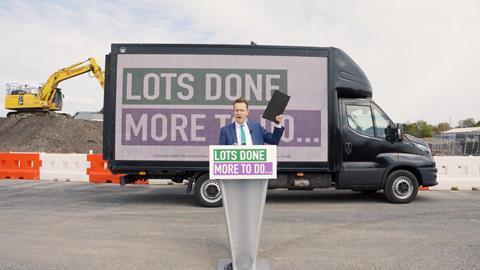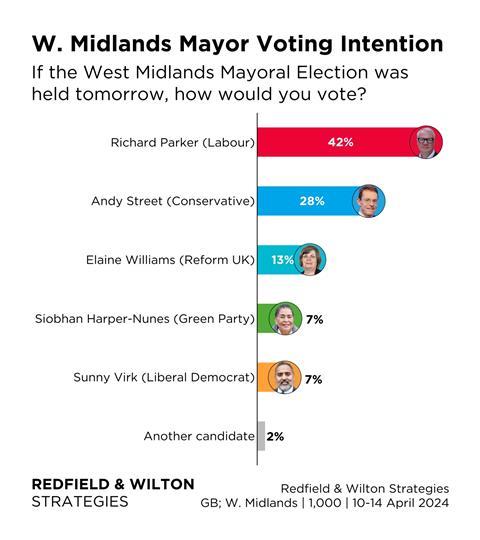Polling shows uphill battle for incumbent in fight for West Midlands mayoralty
Andy Street has set out his pledge to triple the delivery of new social housing in the West Midlands if he is re-elected as the region’s mayor.

Yesterday, the Conservative candidate launched his manifesto, which set out his plans to use Affordable Homes Programme funding, secured from government in the latest devolution deal, to boost delivery of affordable homes.
He wants to triple the number of homes delivered by housing associations annually in the region through the AHP from its current rate of 500-700 a year to 1,700. A spokesperson for Street said the exact tenure of the social homes to be delivered has yet to be determined.
The incumbent mayor also promised to double down on his ‘brownfield first’ approach, work with local councils to bolster planning departments and commission an expert review into the West Midlands Combined Authority’s housing powers, including examining whether it ought to be given independent compulsory purchase powers.
Seeking to distance himself from the national party, Street’s campaign launch refrained from use of the Conservative Party logo, while campaign materials sported green and purple colours, rather than the traditional blue.
While he received a healthy 49% vote share in the first round of voting in the 2021 election, this year’s battle looks set to be much tougher for Street.
>>See also: The general election race is on…what the parties are saying on housing, planning and building safety
According to polling published earlier this week by Redfield & Wilton Strategies, Street currently trails Labour candidate Richard Parker by 14%
The same polling found housing was the third biggest priority for voters in the region, after the economy and healthcare.

As well as a slate of housing policies, Street’s manifesto also promised to “double down” on investment in construction skills training, particularly for young people.
He promised new courses and training hubs and to “develop and support specialist construction skills such as restoration and heritage buildings, to support our efforts to preserve and enhance the region’s historically significant buildings”.
Election focus

As thoughts turn towards the next general election, the UK is facing some serious problems.
Low growth, flatlining productivity, question marks over net zero funding and capability, skills shortages and a worsening housing crisis all amount to a daunting in-tray for the next government.
This year’s general election therefore has very high stakes for the built environment and the economy as a whole. For this reason,
Building is launching its most in-depth election coverage yet, helping the industry to understand the issues in play and helping to amplify construction’s voice so that the government hears it loud and clear.
We kick off this month with a three-parter looking at the state of play across three key topic areas.
Building is investigating the funding gaps facing the next government’s public sector building programmes, looking at the policy options available to the political parties.
In the coming months our Building Talks podcast will focus on perhaps the hottest political topic: the housing crisis. The podcast will feature interviews with top industry names who side-step soundbites in favour of in-depth discussions.
As the main parties ramp up their policy announcements, we will keep you up to date with their latest pledges on our website through our “policy tracker”.










No comments yet